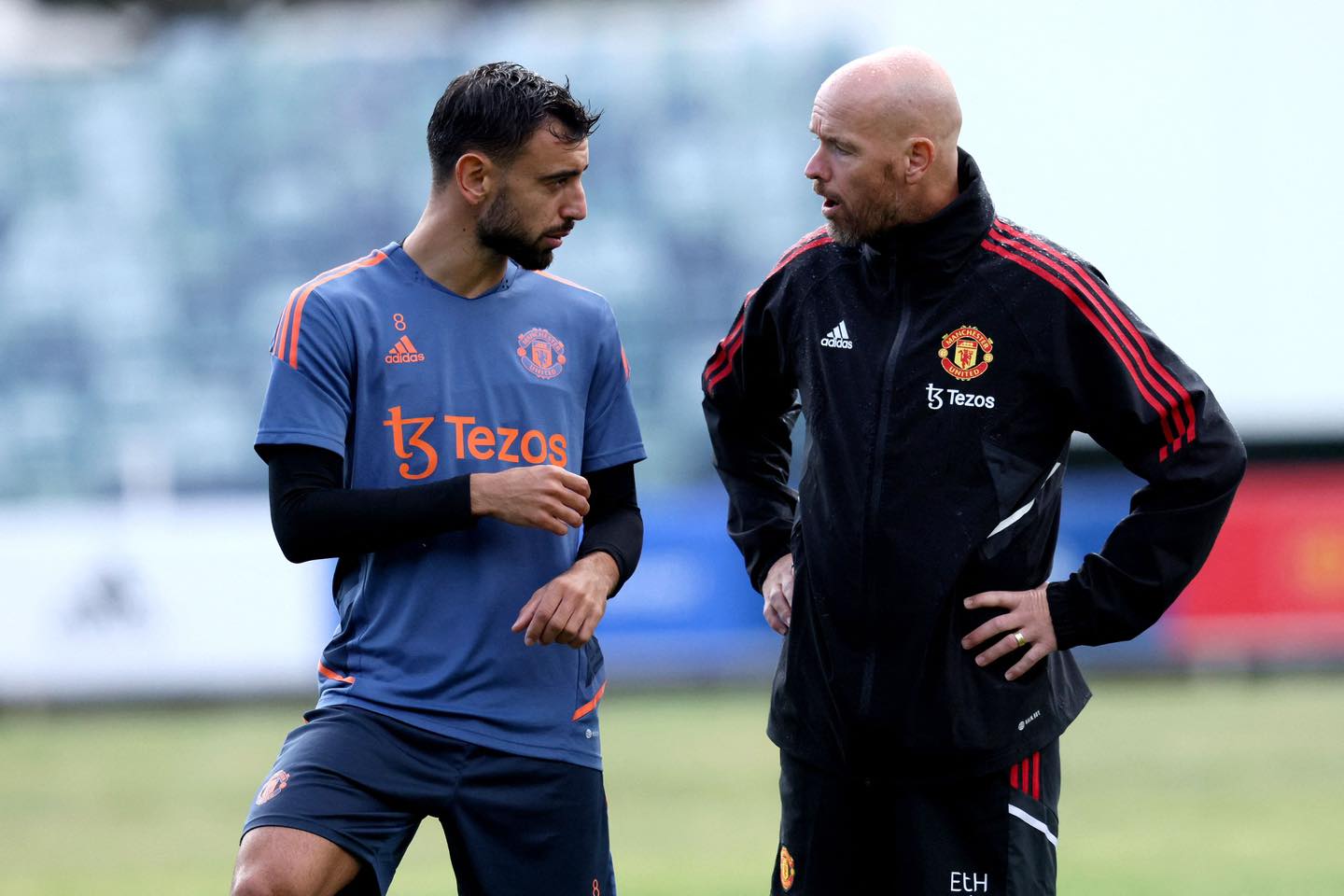Sport
Erik Ten Hag Praises Bruno Fernandes’ Leadership and Generosity on the Pitch

Erik Ten Hag, the esteemed manager of Manchester United, has recently lauded Bruno Fernandes for his exceptional leadership qualities, particularly highlighting an incident involving Marcus Rashford that exemplifies the captain’s team-first mentality. This incident, as Ten Hag describes, underscores the importance of leadership and camaraderie in football, a sport often dominated by individual accolades.
In a game where every goal, assist, and action can be scrutinized and analyzed, it’s the intangible qualities like leadership and selflessness that often make the difference. This was evident in a recent match where Fernandes, instead of taking a scoring opportunity for himself, encouraged Rashford to take the chance. Ten Hag’s recounting of the incident sheds light on the crucial role that captains play in not just leading a team but also in nurturing the confidence of fellow players.
“You saw how great a captain Bruno is,” Ten Hag said, reflecting on the incident. In a moment where personal glory could have taken precedence, Fernandes chose to boost Rashford’s confidence, urging him to take the ball and seize the moment. This gesture, simple yet profound, demonstrates the kind of leadership that is essential in high-pressure environments. It’s not just about leading by example on the field, but also about understanding and empathizing with teammates, recognizing their needs, and acting to uplift the entire team.
Fernandes’ action is a textbook example of altruistic leadership – putting the team’s success and a teammate’s well-being above personal statistics. This kind of leadership is invaluable in the world of sports, where the mental aspect is as crucial as physical prowess. “He could see, feel that his teammate needed that goal… he had confidence in Rashy, he told him: take that ball and take your confidence. As a team, you need that,” Ten Hag elaborated. The Dutchman’s emphasis on the collective over the individual is a hallmark of his managerial style and a philosophy he clearly admires in his captain.
Moreover, this incident is not just about a singular act of leadership; it’s about setting a precedent within the team. When the captain demonstrates such selflessness, it sets a tone for the entire squad, fostering a culture of mutual support and teamwork. This culture can be the bedrock of a team’s success, creating an environment where players feel valued, supported, and confident.
Ten Hag’s statement, “We will always need this kind of leadership,” is a nod to the timeless value of such qualities in sports. While tactics, strategies, and physical training are tangible aspects of football, the intangible qualities like leadership, camaraderie, and empathy often differentiate good teams from great ones.
In conclusion, Erik Ten Hag’s praise of Bruno Fernandes highlights a critical aspect of football often overshadowed by the glitz of goals and victories – the importance of leadership and team spirit. Fernandes’ decision to support Rashford over pursuing personal gain is a testament to his character and his understanding of what it takes to build a successful, cohesive team. It’s a reminder that in a sport as competitive as football, the strength of a team often lies in how players support each other, both on and off the field.
